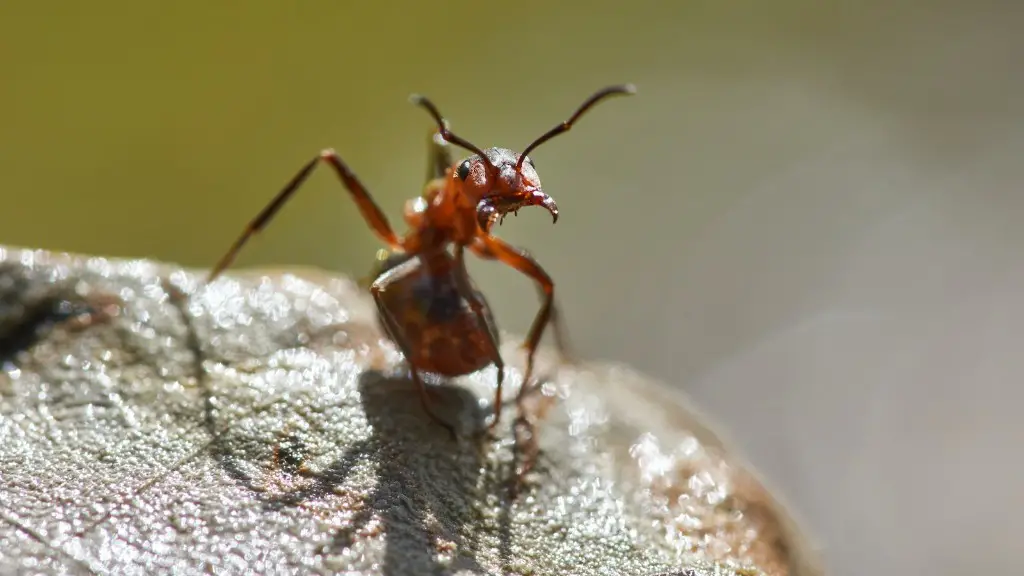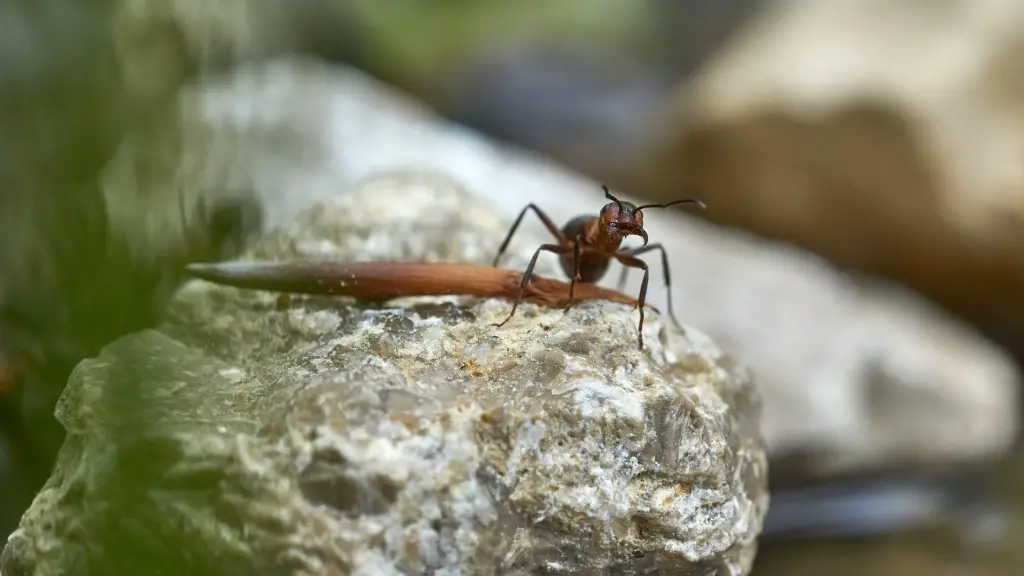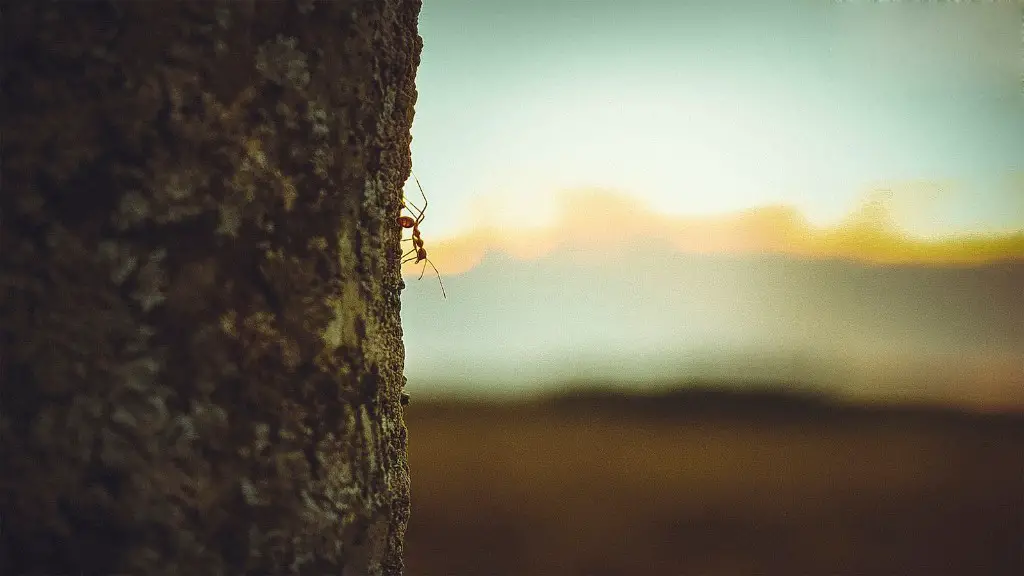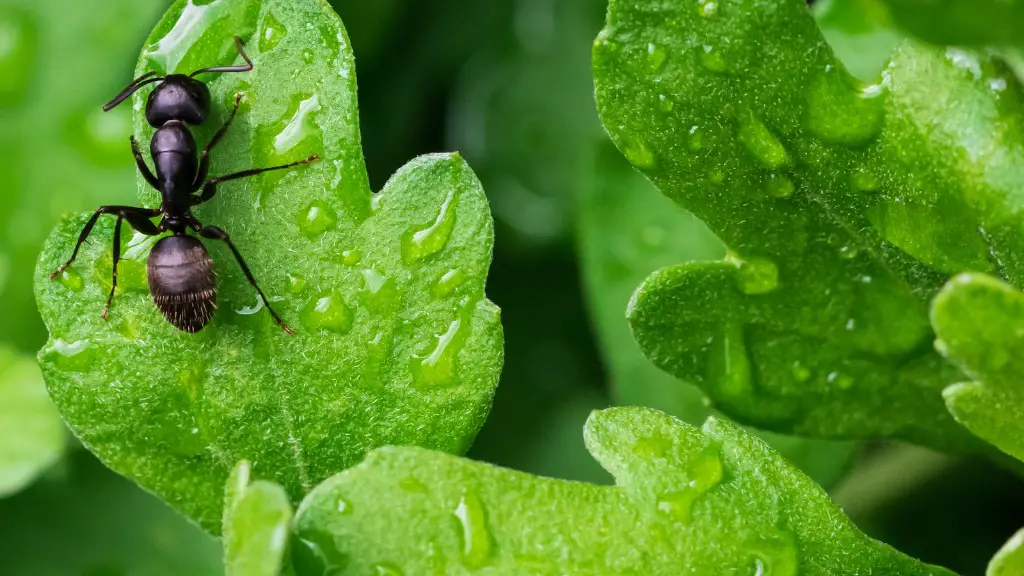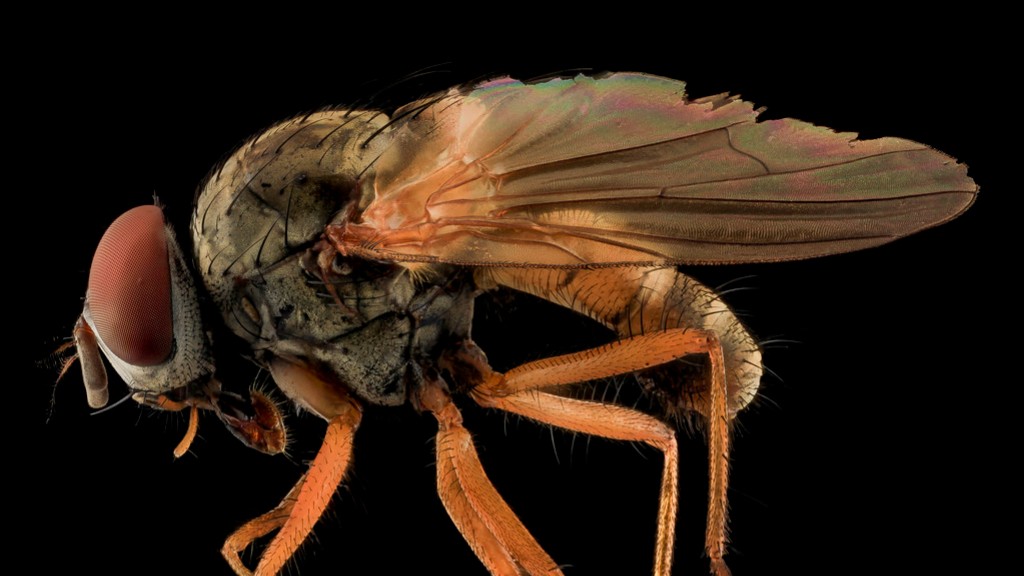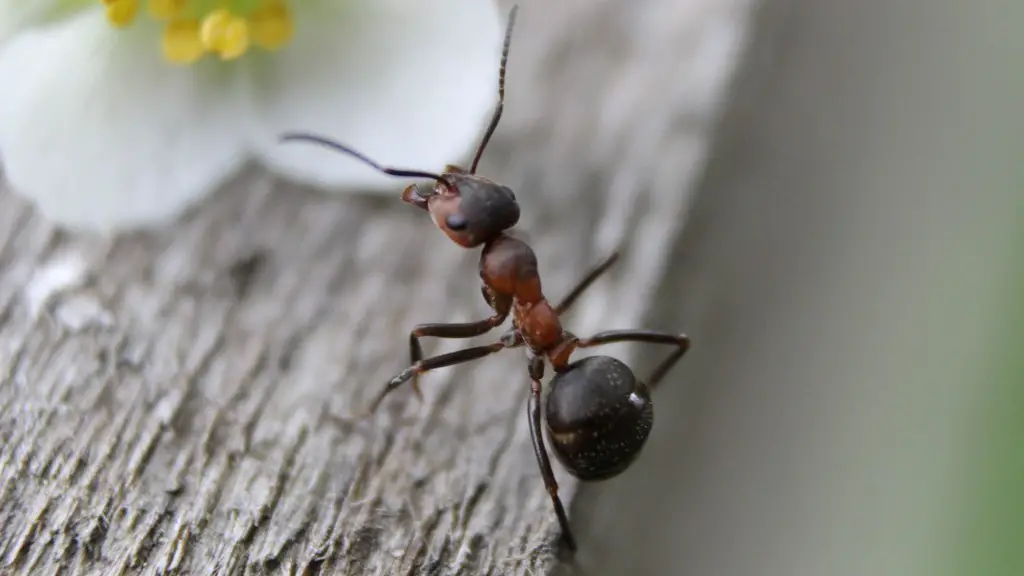Have you ever wondered how long ants sleep and what their sleeping habits are? While these tiny creatures appear to be working constantly, it turns out that ants actually sleep for the majority of their lives. Their sleeping schedules vary from species to species, but on average ants get about three to four hours of sleep daily.
Similar to humans, ants need to rest in order to maintain their energy levels and physical wellness. However, their sleeping patterns are quite distinct to that of humans and other mammals. For starters, ants don’t have the same circadian rhythms and therefore don’t necessarily have a regular sleep-wake cycle. While some species will sleep for extended periods during the day and stay up late into the night, some may go on sleep binges of twelve hours once or twice a week.
Entomologist Dr. Robin Jeffrey explains that this intriguing sleep cycle is largely determined by the environment around them. “When an ant is sleeping, it is in a state of reduced activity and will be less responsive to the environment around it. Temperature, humidity, and the amount of oxygen in the air all effect how long an ant might sleep,” he adds.
In terms of deep sleep, American Fire Ants have been observed to enter a semi-hibernation like state for up to one week at a time. These long periods of sleep coincide with environmental changes such as extreme droughts or high temperatures, which disables their normal patterns of activity. This long sleep is beneficial for the species as it allows them to conserve energy throughout the winter months and the day-to-day stress of living in a crowded environment.
The length of an ant’s sleep is also heavily dependent on its daily workload. On an average day, an ant may be busy searching for food, interacting with nest mates, and exploring the environment around it. All of these activities take up quite a bit of energy and often leave the ant exhausted and in need of a break. They usually retire to the safety of their nest to catch a few hours of rest.
Conversely, worker ants will stay up longer when there is a need to protect the colony or when times of great abundance are present. That’s why you’ll often see ants swarming a newly fallen piece of food or scurrying around with other tasks during the day.
How does an Ant Sleep?
Most ants don’t sleep in the same way that mammals do, rather they enter an inactive, drowsy state for short periods of time. This state is scientifically described as torpor and is evidenced by a decrease in movement and slowed respiration. The torpor state is an intermediate state between sleep and waking which allows ants to conserve energy and become better attuned to the environment around them.
In addition to torpor, they also enter a state of quiescence, which is similar to a deep sleep. This is a more extreme version of torpor, but only lasts for a few minutes and generally happens during the day. When in quiescence, an ant’s body will almost seem to be in suspended animation.
Both torpor and quiescence are incredibly important to the health and wellbeing of ants. These states of rest allow ants to recover their energy levels, sharpen their sense of smell, and rest their eyes after long periods of foraging. They also reduce their metabolic rates, reducing their need for food and enabling them to go for long periods of time without eating.
How Much Sleep Does an Ant get?
Generally speaking, ants get about four hours of sleep per day, with some species getting as little as three hours. The amount of sleep may be affected by other things such as the temperature or the amount of food available. For example, in cooler conditions, ants will slow down their activity levels and enter a Torpor state to conserve their energy.
The amount of sleep also depends on the species of ant, with some getting as much as five hours of sleep per day, while others get only one or two. The amount of sleep can also vary depending on the amount of work they need to do and the time of year. For example, in the spring and summer months, ants are quite active and are likely to get fewer hours of sleep, while in the colder months they may get as much as six or seven hours.
How Do Ants Sleep Differently?
Unlike human beings and other mammals, ants do not have the same circadian rhythms, which means they don’t necessarily have a regular sleep-wake cycle. Therefore, their sleeping patterns vary depending on the species and conditions they live in. Some ants might crash for a few hours and then wake up, while others might stay up late into the night.
In addition to this, ants also can enter a state of torpor or quiescence, which is an intermediate state between sleep and waking. During this state, ants decrease their activity level and respiration in order to conserve energy, thus allowing them to go for long periods of time without food.
Furthermore, the sleeping patterns of ants are heavily affected by the environment around them. Temperature, humidity, and the amount of oxygen in the air all affect how long an ant will sleep, as well as their overall energy levels. This is why ants in colder climates or higher altitude areas tend to sleep for longer periods of time.
How Does an Ant’s Sleep Impact Its Behaviour?
Just as lack of sleep affects human behaviour, it can also affect the behaviour of an ant. For example, ants that don’t get enough sleep may become more aggressive or prone to making mistakes while they are searching for food. This is because they are lacking in energy and focus and are unable to think clearly.
In addition to this, lack of sleep can also lead to weakened immune systems, making them more vulnerable to disease. This can have a devastating effect on the whole colony, as it can make them more prone to being attacked by predators.
In contrast, ants that get enough sleep tend to be more productive, efficient and are more likely to survive in the wild. This is because they are well rested and are able to use their energy wisely, thus enabling them to better protect the colony from dangers.
What Happens When an Ants Sleeps Too Much?
On the flip side, excessive sleep can also be detrimental to an ant’s health. When an ant sleeps for too long, it’s immune system can become weakened, making it vulnerable to predators and disease. In addition to this, extended sleep can lead to a decrease in the ants ability to forage for food, which can lead to malnourishment.
At the same time, too much sleep can also cause ants to become lethargic and lazy, as they are not using their energy in an efficient manner. Even worse, a large amount of ants in the same colony sleeping excessively can cause the colony itself to become dormant, thus reducing their ability to effectively protect themselves from danger.
Conclusion
In conclusion, we have learned that ants have a very unique sleeping pattern and it is heavily dependent on the environment they live in. On average, ants get about three to four hours of sleep per day, with some species getting as little as two hours. They also enter a state of torpor or quiescence which allows them to conserve energy and become better attuned to the environment around them.
Furthermore, ants need sleep in order to maintain their energy levels and physical wellness and sleeping for too long can have a detrimental effect on the overall health of the colony. With that being said, it’s important to ensure that ants get the right amount of sleep, as this is key to the survival and wellbeing of the species.
